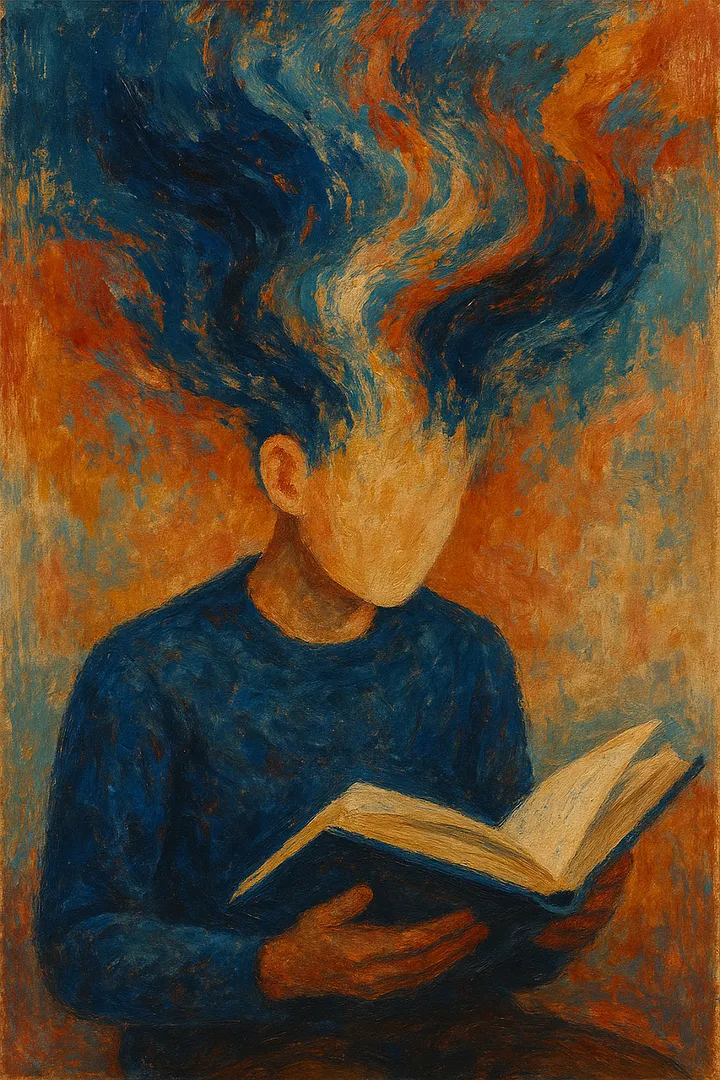Do or do not. There is no try. — Yoda
This iconic line comes from Yoda in Star Wars: The Empire Strikes Back. Yoda was teaching Luke Skywalker a lesson on commitment, mindset and belief.
Don’t approach anything of value halfheartedly; either fully commit to doing it or don’t do it at all. Don’t try, just do it! Don’t settle for the ease of the excuse “I’ll try”, as this can be a way of leaving room for failure before you even begin. Instead, choose to act with intention, do it afraid, even when the task seems hard. It’s not about perfection, but about the mindset with which you approach challenges.
It starts small, a word, a sentence, a paragraph, a page, a book. That’s how you build both discipline and depth.
As dystopian and chaotic as the world tends to be, we must find some form of anchor. Some turn to fiction, some turn to the ease of mindlessness and entertainment, while others stack up books for the aesthetics of it, keeping them untouched and unread. To each his own. Well, for me, I stick to the core tradition of books, one line from, one paragraph, one page, one book, slowly immersing myself into the pages as though the wisdom therein could be transferred via osmosis.
The world has become fast-paced, information flows super fast, opinions and half-baked thoughts swing in now and then, reels and micro content flood us with quick hits of dopamine, and attention has become a scarce commodity. Sadly, this has become the norm. It appears to be some sort of rebellion to sit still, pause, and think. And reading? That’s an even greater sin, as it takes time, attention and patience, three things the modern climate trains us to avoid.
Buying books for the sake of aesthetics is no different; it’s like playing a different move order of the same chess opening — it gets to the same familiar set-up. Yes, buy books, it’s great, but dare to read them, one line, one paragraph, one page, soon one book. Some folks buy books just to display a full shelf, pretty noble intentions, but they are stuck in a loop, and to feel relieved, they buy more books. (I need these folks in my corner, so I can freeload on their bookshelves 🙂).
Weirdly, unread books have their values; they are symbols of curiosity, an ideal we hope for, a reminder that there is something else we should be doing. So don’t worry, even if you have a decorative shelf of books, I hope something calls deep into you more than the fanciful view of ascribed intellectualism, but a prick for you to pick up one of the books and get lost in the pages.
Strangers in Transit
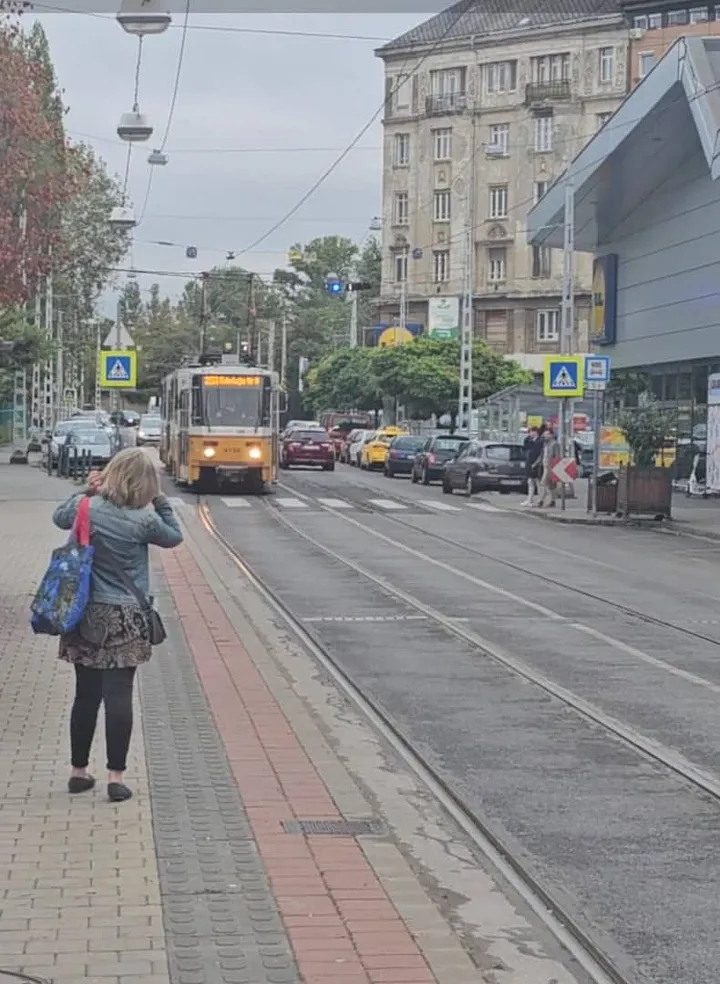
There is something captivating about women who read. I’m not talking about beauty in the conventional sense, but an elegance coated in curiosity, and a graciousness to host deep thoughts. This kind of beauty does not fade, it unfolds. This realization came to mind for me during a layover in Europe, one of those long, in-between hours where time softens and strangers form clusters around airport gates. I was seated near two European women reading and chatting softly; they were probably friends. One was reading My Lovely Wife by Samantha Downing, the other was immersed in Homo Deus by Yuval Noah Harari. Coincidentally, I had read both books. And in that moment, surrounded by stillness, I felt something familiar, like being in the company of people who understand the unspoken weight of words.
I then muttered almost reflexively, Fictions enable us to cooperate better, but the price we pay is that the same fictions also determine the goals of our cooperation. They paused and looked at me. How so? One of them asked. I leaned in slightly and added, We build these systems — capitalism, religion, love, politics that function smoothly. But they only seem successful when judged by the system’s own rules. A system can be deeply flawed or even harmful, yet feel normal, even necessary, simply because we have internalized its logic. She nodded, and her eyes narrowed in agreement. Facts, she said, then asked, smiling, Are you a professor or something?
I chuckled. I am no Professor Xavier, but just a reader. That idea is from the book you are holding. She blinked, surprised. You kidding me? I kid you not, homo deus. You probably read past it. She flipped back through the pages, laughing. I laughed too, it’s human, I said. We often miss things not because we are careless, but because we’re not used to slowing down. We forget to pause, to ask questions, to look a little deeper.
Then I turned to her friend, the one reading My Lovely Wife. You know what struck me in that book? What we call twisted is just something that started as normal, left unchecked for too long. And the scariest part — the shift is subtle, by the time you notice, it feels normal.
She held the book a little tighter, as though she were giving it a warm hug. That’s true, she said quietly. I hadn’t thought of it that way. What followed was unexpected: a deep, honest conversation about books, memory, morality, art, and the invisible things we all carry.
A moment ago, I was just someone sitting nearby. Now I was part of something real.
I can sniff your curiosity, dear reader. You wonder if I took the conversation beyond that.
Oh well, not every interaction with beautiful and articulate women should be explored romantically. We said our goodbyes. They boarded their flight, and I boarded mine, but the conversation stayed with me. A reminder that books don’t just open up worlds, sometimes, they open people, even strangers.
Books are Safe Havens
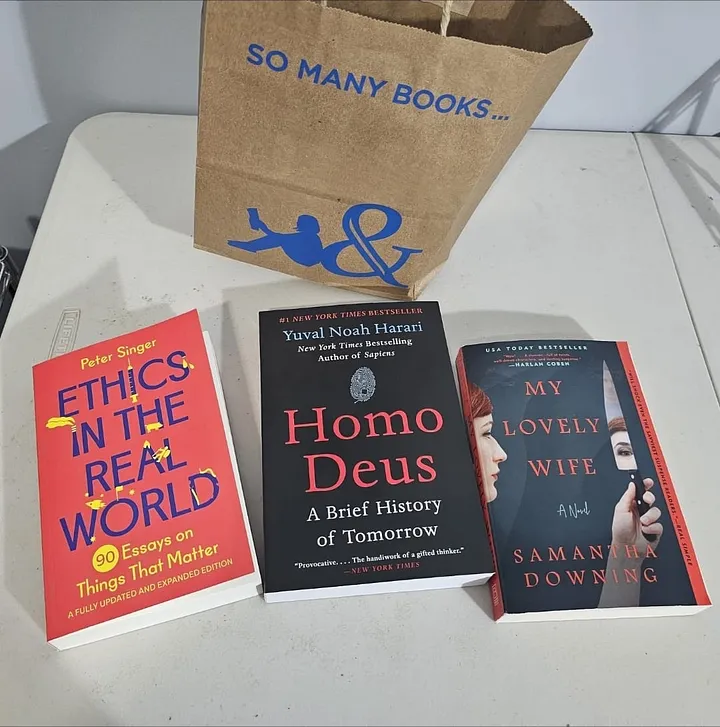
“You think your pain and your heartbreak are unprecedented in the history of the world, but then you read.” James Baldwin
Ever wondered why sapiosexuals are picky? I think it’s because their dating app is a brain gym. Their interest can only be piqued when someone can lift some serious mental weight or straddle their minds intellectually. This explains Sherlock Holmes’s obsession and fear of Irene Adler. Brilliant minds connect on books and the capacity for real thinking deeply. A well-read brain is the ultimate turn-on on like a safe place.
I think it’s imperative to keep your intellect sharp across all fields, be it literature, languages, culture, science, art and many more. I mean, you are only a book away from new ideas!
Find a haven in books, know the stories, the thinkers, the lessons they offer, and stay engaged with knowledge and insight. Become a person of endless learning, cultivate a versatile skill set fueled by the wisdom of many pages, ready to navigate any challenge, conversation, or opportunity that comes your way. You never really know, we are one small talk, or one page away from life-changing moments.
The sacred obsessions
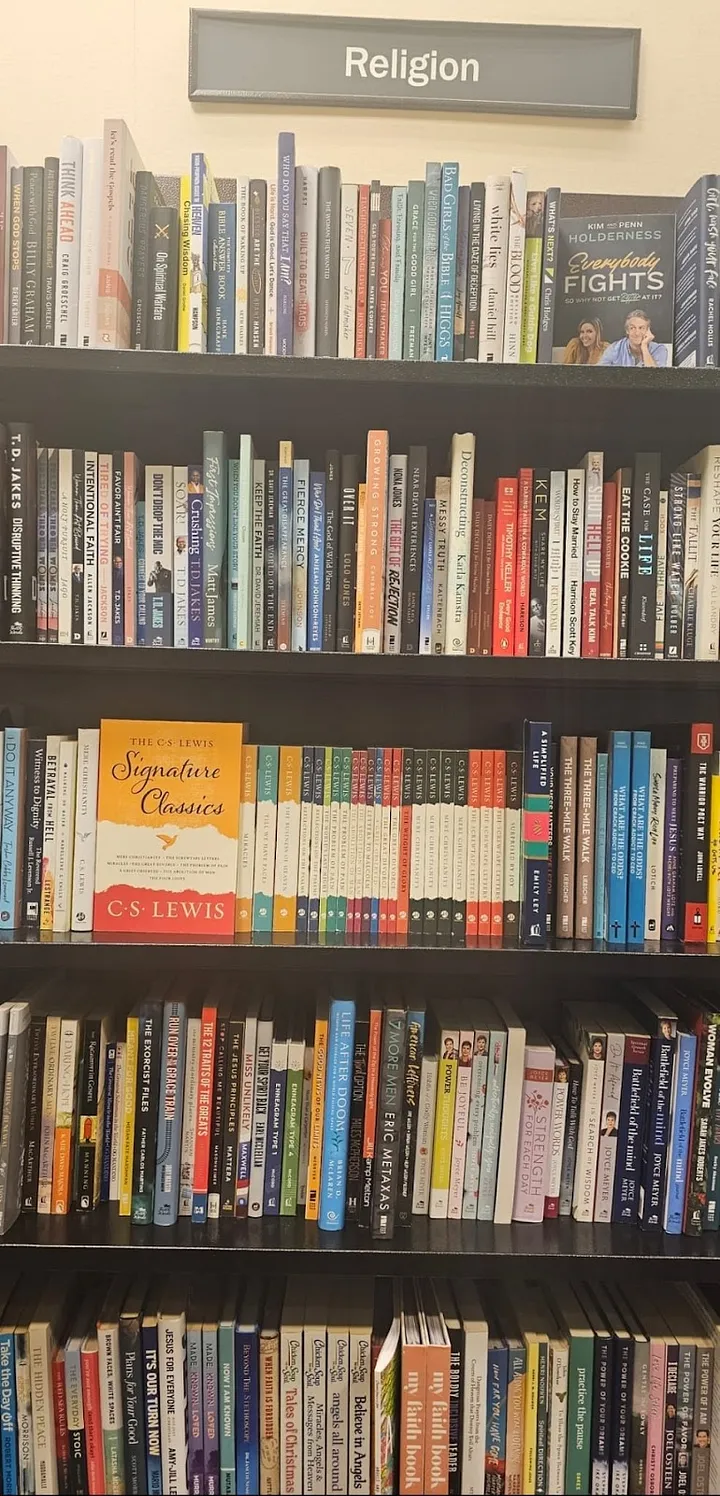
The first time I stepped into a Barnes Noble bookstore in New Jersey, I almost screamed yee yee like a village boy, not out of surprise but from the sudden, overwhelming collision of joy, gratitude and memory. It felt like entering a cathedral built for my soul. Shelves upon shelves of books I had only dreamed of, and titles I once waited months for back home, now sitting quietly within my arm’s reach. Coming from the third world, where ordering a single book meant long delays, stress from the Customs office, and disappointment, this moment felt surreal. I became spoiled for choice and stood frozen.
Tears were slowly building up, but it wasn’t just from happiness; it was a kind of grief for my younger self who chased knowledge across dusty markets and borrowed pages. This wasn’t just a bookstore to me, it was a reminder of how far I’d come and how deeply I still loved the written word.
People often ask why I read so much. Why do I keep buying books like I am stocking up for a storm? Why would I rather spend my money on a novel than one pizza, ice cream or something momentarily sweet like going out on a date and connecting with people? All of these things are good, but I am guilty as charged, and I think it’s an extenuating circumstance. Books, for me, are not just for gaining information; they give me experience, and you see that experience, real or imagined, is the greatest investment you can make in yourself.
No opinion, no matter how eloquent, can unsettle the quiet authority of lived experience.
I’ve been told I’m too young to feel this deeply, to talk with such depth about heartbreak, betrayal, loss, or loneliness as if I’ve lived it all. But I have lived it, maybe not always firsthand, but deeply with my mind through words, paragraphs, and pages, and other people’s stories, in characters who got broken, healed, and tried again.
Books have made me bleed gently. When I read a page or chapter, I think about it all day, thinking why, what, and how, internalizing the ideas, seeking other alternatives the author could have given the protagonist– Whew! It’s unhealthy to play a fictional character or to have abstract conversations with the author in my head.
Books taught me how people think, love, hurt and forgive. They have helped me survive moments I didn’t know I had language for. Am I obsessed? Maybe, but I’d rather be obsessed with understanding than being numb with ignorance. With books, I live a hundred lives and coast through my one life without clarity. As Marcus Aurelius said, “What are you afraid of losing when nothing in this world belongs to you?”
My older friends often ask how old I am really. Well, I am old enough to know that pages can hold truths that the world hides, old enough to know that pain written down is easier to carry and young enough to still hunger for more, more stories, more wisdom.
I don’t remember every book I’ve read, but I remember the ones that stayed with me. I read to understand the world, and I write to understand myself.
Mente con fugas y rudio (leaky mind and noise)
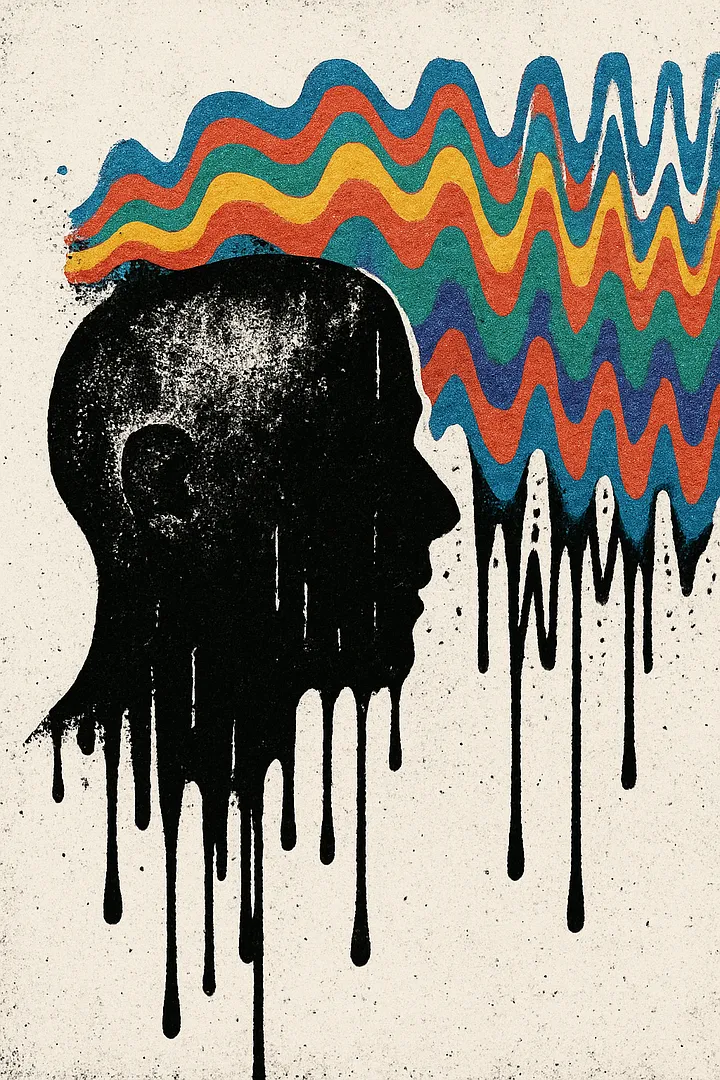
Have you ever been in a conversation with someone whose mind is all over the place? I always wonder why our minds are leaky while we interact with others, our focus often drifts away, distracted by competing thoughts and half-heard words. We try to hold a conversation while thinking about a dozen other things. Listening becomes shallow, and our presence fragmented. This leaky mind makes genuine understanding difficult. We miss what’s not said aloud, the subtle pauses, the tone shifts, the hidden feelings behind words.
Human interactions demand constant effort to plug these leaks. To refocus and be truly present. This is where books quietly step in as an unexpected healer. When you read, you practice not having a leaky mind. Books teach you to anchor your attention fully on one thing — the story, the ideas, and the emotions on the page. They also teach you patience and deep focus. More importantly, reading hones your skill in listening beyond words. Through characters, dialogues and narratives, you sense what’s left unsaid and grasp the complexities hidden in silence.
You may wonder how this translates to life, but it absolutely does. With books, you seize the moments, you become an empathic listener and a more attuned companion. You know those patient friends who don’t interrupt or judge, who listen deeply and become whole in your attention. They can be compared to books because they read you well.
Understanding Others Through Fiction
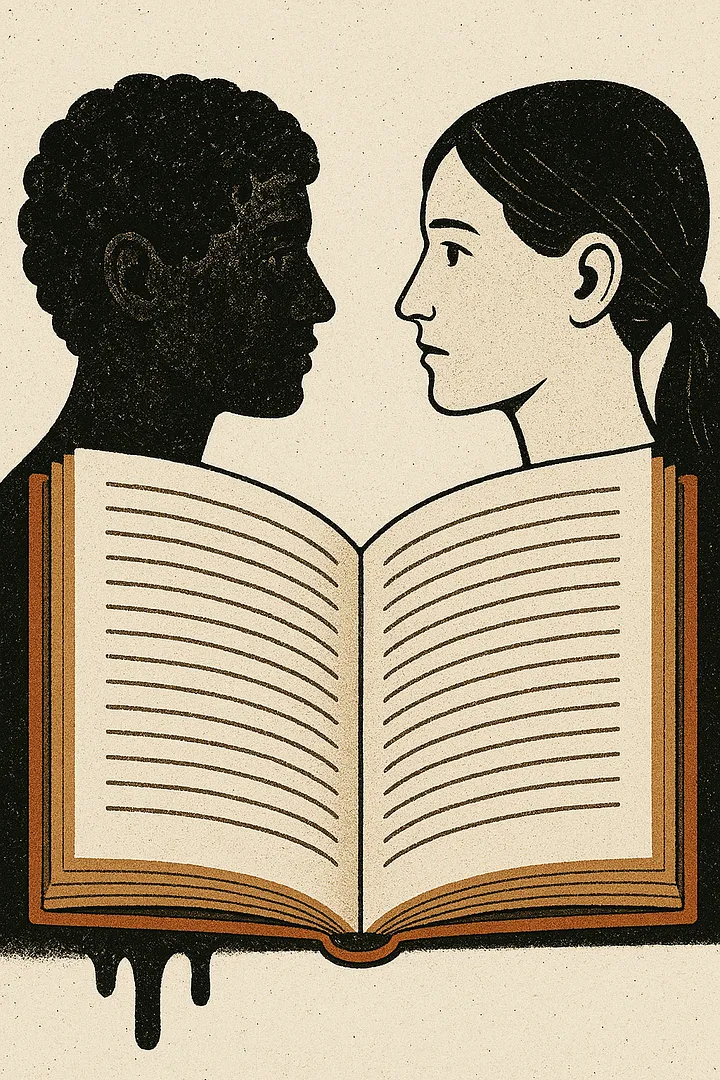
Sometimes I think that if we read more fiction, we’d all understand each other better. The truth is, most people assume more than they ask. They forget that not everyone lives the same kind of life; we all have different upbringings, struggles and environments, and where there’s no curiosity, there’s just judgment.
Fiction reminds you how different life can look through someone else’s eyes, you feel things you have never experienced, grief that’s not yours, joy that catches you off guard, and struggles you never would have imagined possible. It humbles you and teaches you to listen before you speak, ridding you of assumptions until you get to experience someone. Sadly, a lot of people don’t read; they consume reels on social media for entertainment, and this does not challenge their perspective, and they get stuck in it.
When challenged, we get defensive instead of open, loud instead of thoughtful. I’m learning that sharing your thoughts doesn’t have to feel like a fight. You can disagree without being aggressive and offer a new perspective without trying to win. That’s what reading, especially fiction, teaches you. Your reality isn’t the only one that exists. And honestly, that’s the kind of mindset that could change a lot of lives.
Knowing is not enough; we must apply. Willing is not enough; we must do – Johanne Wolfgang von Goethe
There was a time when I thought being academically smart was enough, when I believed knowledge alone could carry me through the noise of life, but the world isn’t a library, it’s a corner store, a boardroom, a battlefield of quiet politics and loud pretenses.
I have learned that being book-smart gives you language, but being street-smart teaches you timing. One fills your mind, the other keeps you from bleeding in places where intellect alone won’t protect you. Reading taught me empathy to understand the lives I’ll never live and see beyond my own experience. It helped me recognize that most people don’t ask enough questions because they assume their world is the world. Fiction showed me that loyalty isn’t always clean, that it can be messy, it bends with context, shifts with survival and sometimes, walking away is the most loyal thing you can do for yourself.
There was a time I’d enter rooms overcompensating, feeling the need to prove I was worth listening to. But blending book smarts and street smarts taught me that power doesn’t shout, it listens, it observes. It lets others treat you according to their perception, and then it decides whether their table is even worth sitting at, because too many relationships today aren’t about connection but about status. Friendships have become performative, and people pose for love and play loyalty when it only benefits them. A game of optics, very loud but hollow.
If you are famous, rich, or prominent, avoid people whose friends are all famous, rich, or prominent.” — Nassim Nicholas Taleb
We often think visibility equals worth, until the moment we’re seen but still feel unseen.
That’s when the real story begins, the more you read, the more you live what you read, the less interested you are in the games that cost your peace.
So I read to disappear, not to escape but to remember. To stay sharp, kind, and maintain my essence. Then I return to the world not just with pages in my mind but with clarity in my steps. Because knowledge is only power when you live it. And in this life, I’d rather be deeply understood by a few than perform for many who only see my surface.
The world rushes on, but I’ll be here, chasing quiet things. Until next time, dear reader, may your paths remain lit.
